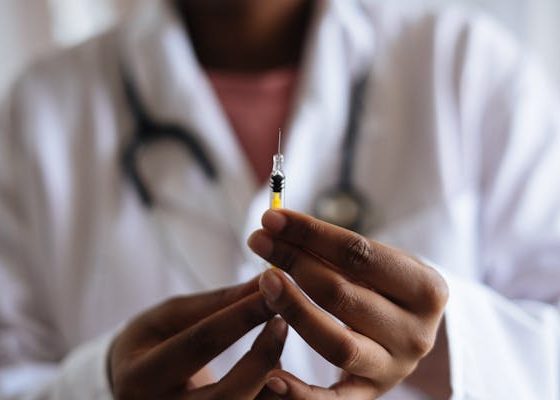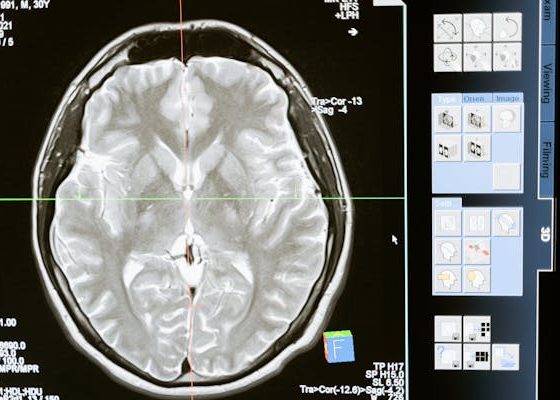Anemia is a common health condition that affects millions of people worldwide. It occurs when the body doesn’t have enough healthy red blood cells (RBCs) to carry oxygen to the body’s tissues. This can lead to a variety of symptoms, including fatigue, weakness, dizziness, and shortness of breath. While anemia can have multiple causes, it is crucial to understand that prevention is possible, particularly with the right diet and lifestyle choices.

An untreated case of anemia can lead to severe complications, including damage to vital organs and a significant reduction in the quality of life. By the end of this article, you will have a comprehensive understanding of anemia, including its dangers if not treated and, most importantly, how to prevent anemia effectively.
Types of Anemia
Anemia is not a one-size-fits-all condition. There are several types, each with unique causes and characteristics:
- Iron Deficiency Anemia: This is the most common form of anemia and occurs when the body doesn’t have enough iron to produce hemoglobin. Hemoglobin is the protein in red blood cells responsible for transporting oxygen. Low iron levels can result from poor dietary intake, blood loss, or an inability to absorb iron efficiently.
- Vitamin Deficiency Anemia: A lack of essential vitamins such as vitamin B12 and folate can lead to anemia. These vitamins are critical for red blood cell production, and their deficiency can result in fewer and less effective RBCs.
- Aplastic Anemia: This is a rare but serious condition in which the bone marrow fails to produce enough red blood cells. Aplastic anemia can be caused by autoimmune disorders, exposure to toxic chemicals, or certain medications.
- Hemolytic Anemia: In this type of anemia, red blood cells are destroyed faster than they can be produced. It can be inherited or acquired due to infections, certain drugs, or autoimmune diseases.
- Sickle Cell Anemia: This is a genetic form of anemia in which red blood cells become abnormally shaped (like a sickle), leading to their premature breakdown and difficulty in carrying oxygen. Sickle cell anemia primarily affects individuals of African, Mediterranean, and Middle Eastern descent.
- Thalassemia: Another inherited form of anemia, thalassemia results in the production of abnormal hemoglobin, causing the body to destroy RBCs prematurely. This condition can range from mild to severe, depending on the genetic mutation involved.
- Anemia of Chronic Disease: Chronic conditions such as kidney disease, cancer, or inflammatory diseases can cause this type of anemia. The underlying disease hampers the body’s ability to produce sufficient red blood cells.
Causes of Anemia
Anemia can result from a wide array of causes, which fall into three primary categories:
1. Blood Loss
One of the most common causes of anemia is blood loss, either acute (due to injury or surgery) or chronic (as with gastrointestinal bleeding or heavy menstruation). When the body loses a significant amount of blood, it depletes its supply of red blood cells, leading to anemia. Conditions like ulcers, hemorrhoids, or cancers in the digestive tract can cause internal bleeding, contributing to this type of anemia.
2. Decreased or Faulty Red Blood Cell Production
Several factors can disrupt the production of red blood cells, leading to anemia. These include:
- Nutritional Deficiencies: A lack of iron, vitamin B12, or folic acid in the diet can impair red blood cell production.
- Bone Marrow Disorders: Conditions such as leukemia or myelodysplastic syndromes can affect the bone marrow’s ability to produce healthy RBCs.
- Hormonal Imbalances: Certain hormones, like erythropoietin produced by the kidneys, stimulate red blood cell production. If these hormones are insufficient, anemia may develop.
3. Increased Destruction of Red Blood Cells (Hemolysis)
In hemolytic anemia, the body destroys red blood cells faster than they can be replaced. This can happen due to inherited conditions like sickle cell anemia or thalassemia, or it can be acquired due to infections, autoimmune diseases, or certain medications.
Symptoms of Anemia
The symptoms of anemia can range from mild to severe and often depend on the underlying cause. Some common symptoms include:
- Fatigue and weakness
- Pale or yellowish skin
- Dizziness or lightheadedness
- Shortness of breath, especially with physical activity
- Chest pain or palpitations
- Cold hands and feet
- Headaches
- Cognitive problems or difficulty concentrating
Severe anemia may lead to more serious complications, such as heart problems, pregnancy complications, or delayed growth and development in children.
The Dangers of Anemia If Not Treated
Anemia is more than just a condition that causes fatigue and weakness. If left untreated, anemia can lead to severe health complications. The longer anemia persists without treatment, the more damage it can cause. Here are some of the most serious dangers associated with untreated anemia:
1. Heart Problems
Anemia forces the heart to work harder to pump blood to make up for the lack of oxygen-carrying red blood cells. Over time, this increased workload can lead to a range of cardiovascular problems, including:
- Enlarged heart: The heart may enlarge as it strains to pump more blood.
- Heart murmurs: Irregular blood flow can cause abnormal heart sounds.
- Heart failure: In severe cases, untreated anemia can lead to heart failure, where the heart is unable to pump blood effectively.
2. Pregnancy Complications
During pregnancy, the body needs more red blood cells to support the developing fetus. If a pregnant woman is anemic and it goes untreated, it can increase the risk of complications such as:
- Premature birth: Babies may be born too early, leading to underdeveloped organs.
- Low birth weight: Anemia can result in smaller, underweight babies.
- Postpartum depression: Severe anemia can contribute to depression after childbirth.
3. Severe Fatigue and Decreased Quality of Life
Anemia affects the body’s ability to carry out everyday activities. Chronic fatigue, shortness of breath, and dizziness can make it challenging to maintain work, social, and personal life. If left untreated, this condition can lead to a diminished quality of life, affecting both physical and mental health.
4. Cognitive and Developmental Delays in Children
Children who suffer from anemia, especially those who experience it during critical stages of development, are at risk of cognitive delays. Untreated anemia can impair brain function and development, leading to learning difficulties, behavioral issues, and reduced academic performance.
5. Weakened Immune System
Anemia compromises the immune system, leaving the body more susceptible to infections and illnesses. This is because the body’s immune response requires adequate oxygen supply, and with fewer red blood cells, the immune system cannot function optimally.
6. Organ Damage
Untreated severe anemia can deprive vital organs, such as the brain, liver, and kidneys, of oxygen. This can result in organ damage, which in some cases, can become irreversible. Chronic anemia, especially if severe, can lead to multi-organ failure if not addressed in time.
Diagnosis of Anemia
To diagnose anemia, a healthcare provider will typically start with a detailed medical history and a physical examination. Blood tests, including a complete blood count (CBC), are essential to assess the number of red blood cells, hemoglobin levels, and the size and shape of the RBCs. Additional tests may be required to determine the underlying cause, such as:
- Iron levels: To check for iron deficiency.
- Vitamin B12 and folate levels: To diagnose vitamin deficiency anemia.
- Reticulocyte count: To evaluate how quickly new red blood cells are being produced.
- Bone marrow biopsy: In cases of suspected bone marrow disorders or aplastic anemia.
Treatment of Anemia
The treatment of anemia depends on its cause. For most cases, the primary goal is to increase the number of healthy red blood cells in the body. Here are some common treatments:
1. Iron Supplementation
For those with iron deficiency anemia, taking iron supplements is a common and effective treatment. These can be taken orally, and in severe cases, intravenous (IV) iron may be required. It’s essential to take iron supplements as directed by a healthcare provider to avoid side effects such as constipation or stomach upset.
2. Vitamin Supplementation
If anemia is caused by a deficiency in vitamin B12 or folic acid, the treatment typically involves dietary changes and supplements. In some cases, vitamin B12 may need to be administered via injections, especially if the body has difficulty absorbing it from food.
3. Blood Transfusions
In severe cases of anemia, especially those caused by sudden blood loss or certain types of hemolytic anemia, blood transfusions may be necessary to quickly replenish the body’s red blood cell supply.
4. Medications
For anemia caused by chronic diseases, medications may be required to stimulate red blood cell production or treat the underlying condition. For example, erythropoietin-stimulating agents (ESAs) can be used in patients with chronic kidney disease to boost RBC production.
5. Bone Marrow Transplant
In rare cases, such as aplastic anemia or certain genetic forms of anemia like sickle cell disease, a bone marrow or stem cell transplant may be necessary to restore healthy blood cell production.
How to Prevent Anemia
Prevention is a key aspect of managing anemia, especially when it comes to dietary and lifestyle factors. While some types of anemia, like those caused by genetic conditions, cannot be prevented, many others can be avoided by taking the right steps. Here’s how to prevent anemia effectively:
1. Ensure Adequate Iron Intake
Iron is essential for the production of hemoglobin, the protein in red blood cells that carries oxygen. To prevent iron deficiency anemia, it is crucial to consume foods rich in iron, such as:
- Red meat, poultry, and fish: These animal-based foods contain heme iron, which is more easily absorbed by the body.
- Leafy green vegetables: Spinach, kale, and other greens are excellent plant-based sources of non-heme iron.
- Beans and lentils: These legumes are rich in iron and are an excellent option for vegetarians and vegans.
- Iron-fortified cereals and grains: Many breakfast cereals and grains are fortified with iron, making them a convenient way to boost your intake.
Pairing iron-rich foods with vitamin C can enhance iron absorption. For example, having a glass of orange juice with an iron-rich meal can improve your body’s ability to absorb non-heme iron from plant sources.
2. Consume Sufficient Vitamin B12 and Folate
Vitamin B12 and folate (folic acid) are critical for red blood cell production. Deficiencies in these vitamins can lead to megaloblastic anemia, where RBCs are abnormally large and cannot function properly. To prevent this type of anemia, include the following in your diet:
- Vitamin B12 sources: Meat, dairy products, eggs, and fortified plant-based alternatives (like fortified cereals and plant milks).
- Folate sources: Leafy greens, beans, peas, and fortified foods like bread and pasta.
For individuals who have difficulty absorbing vitamin B12, such as those with pernicious anemia or certain gastrointestinal conditions, regular B12 injections may be necessary.
3. Address Chronic Diseases
If you have a chronic disease such as kidney disease, cancer, or an inflammatory condition, it is essential to manage your condition to prevent anemia of chronic disease. Working with your healthcare provider to monitor your blood cell counts and addressing the underlying condition can help reduce the risk of anemia.
4. Avoid Excessive Blood Loss
For individuals prone to heavy menstrual bleeding, gastrointestinal bleeding, or frequent blood donations, addressing these causes of blood loss is crucial in preventing anemia. In some cases, medical or surgical interventions may be necessary to control blood loss.
5. Take Iron Supplements When Necessary
In some cases, dietary intake alone may not be sufficient to prevent anemia. Pregnant women, for example, have increased iron needs, and they may require iron supplements to prevent anemia during pregnancy. Individuals with conditions that impair iron absorption, such as celiac disease or Crohn’s disease, may also need to take supplements under medical supervision.
6. Maintain a Balanced Diet
A well-balanced diet that includes a variety of nutrients is essential for overall health and the prevention of anemia. In addition to iron, vitamin B12, and folate, other nutrients like copper, zinc, and vitamin A also play a role in red blood cell production and function.
7. Regular Medical Check-ups
Routine blood tests can help detect early signs of anemia before it becomes severe. If you have a family history of anemia or other risk factors, it’s a good idea to get your blood levels checked regularly. Early intervention can prevent complications and improve overall outcomes.
Conclusion
Anemia is a widespread condition with many potential causes, ranging from nutritional deficiencies to chronic diseases and genetic disorders. While it can lead to a range of symptoms that affect daily life, the good news is that many forms of anemia are preventable and treatable. By understanding how to prevent anemia through proper nutrition, lifestyle adjustments, and regular medical care, individuals can take proactive steps to maintain their health and avoid the debilitating effects of anemia.
Untreated anemia can lead to severe complications, such as heart failure, organ damage, and developmental delays. Preventing anemia is particularly important for vulnerable populations, including pregnant women, children, and individuals with chronic conditions. Whether it’s increasing your intake of iron-rich foods, taking supplements as needed, or managing an underlying health condition, these preventive measures can help ensure that your red blood cells remain healthy and able to carry oxygen efficiently throughout your body. Taking these steps not only prevents anemia but also promotes overall vitality and well-being.







